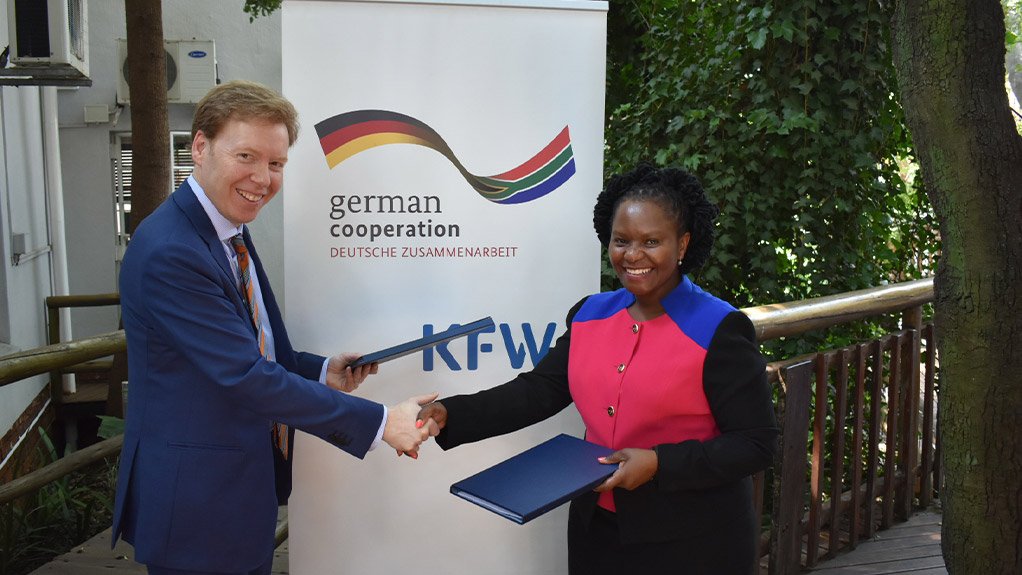
The negative effects of the COVID-19 pandemic and subsequent hard national lockdown cannot be overstated when it comes to the construction industry. The economic shock brought on by the two-month work suspension has caused great hardship for all operating in and around the sector. After a turbulent 2020, the construction sector is eager to make 2021 a much more prosperous year.
Economic Reconstruction and Recovery Plan
This is according to Allen Bodill, Executive Director at the Master Builders and Allied Trades Association Western Cape (MBAWC), who is encouraged that, while the country remains on Level 1 of the Government’s Risk-Adjusted Strategy, it is now operational again, albeit in a limited capacity. “The recent Economic Reconstruction and Recovery Plan (ERRP) and supplementary Medium-Term Budget Policy Statement (MTMPS) expanded on the Government’s medium to long term plans for the economy. These timely strategic and policy statements have helped to address some of the uncertainty in the market”.
“Government’s prioritization of our industry, given the labour-intensive nature of the Construction Industry and its ability to reinvigorate the economy, is further reassurance this year-end,” adds Bodill. “We note and welcome the Government’s renewed commitment to regulatory reforms and its efforts to ease and reduce the cost of doing business”.
Shorter builders’ holiday
This December will be unlike any in recent memory for the industry, as Contractors try and make up for the lost time during the period of lockdown, he continues. “Conventionally in South Africa, the building industry has closed for business from mid-December and reopened in early January, as part of the ‘builders’ holiday’. This year, the Rapid Response Task Team has recommended that the builders’ holiday extend for only five business days, 24th December 2020 until 05th January 2020. The shortened break is intended to ensure that people can earn a livelihood”.
That said, the annual shutdown in the Western Cape region is governed by the Building Industries Bargaining Council (BIBC). The Council have confirmed the annual shutdown in the Cape Peninsula, as starting on Friday afternoon 11th December 2020 and ending on Monday morning 11th January 2021. The Council, having due regard for the amount of time lost during the year and the economic hardship that this has caused, have provided for an exemption process to be followed by those local employers who wish to work later than the 11th December and start up before 11th January. A number of local contractors have already applied for permission to be exempted from the stated shutdown, following consultations with their respective workforce and any applicable Trade Unions which may be represented amongst their workers. Council has granted all of these exemption applications received to date.
Compliance with health and safety protocols remains a priority for MBAWC even as the industry continues to navigate the ‘new normal’. Of utmost importance, especially in the light of COVID-19, is familiarity and compliance with the Occupational Health and Safety (OHS) Act.
Prevention, treatment and vaccination
Bodill points out that MBAWC is well-resourced in this area, with its in-house OHS department. “We are re-assured by the recent reports of successful clinical trials for various vaccines and hope these can be finalised and distributed, both equitably and timeously, throughout the globe”. The Association notes with concern, the resurgence of infection rates in our region in the recent days and implores all of its members to continue to scrupulously follow the COVID safety protocols.
The MBAWC will continue to raise awareness about the illegal occupation of construction sites and the soliciting of protection money from contractors. “This criminality poses a serious threat to the safety and wellbeing of all site-based staff and greatly undermines the confidence of prospective investors and developers. We are currently engaging with SAFCEC, Business Against Crime Western Cape, law enforcement and other industry stakeholders, to ensure we stamp out this illegal practice”, says Bodill.
As MBAWC we believe that there are exciting opportunities to be unlocked through more public-private partnerships (PPPs), he adds, “Such PPPs will initially have positive financial short and long-term spinoffs at the local level and will ultimately flow through to the national macroeconomy. In 2021, we are committed to exploring further business opportunities of this nature”.
Greening the industry
Bodill says that the sector embraces the green economy. Our industry continually strives for new and innovative, industry-specific solutions to the challenges of climate change. “It is our priority to reduce our waste and, more importantly, our carbon footprint. Initiatives such as waste picker integrations and the revitalization of buy-back centres are exciting prospects that we hope to see gain traction”.
“Many of our plans for the year 2020 were completely upended by the COVID-19 pandemic, yet we remain resilient as we head into 2021. We thank our members and fellow industry stakeholders alike for the unity and collective responsibility they have shown throughout. Let us embrace the challenges that may lay ahead and strive for a prosperous 2021”, Bodill concludes.




